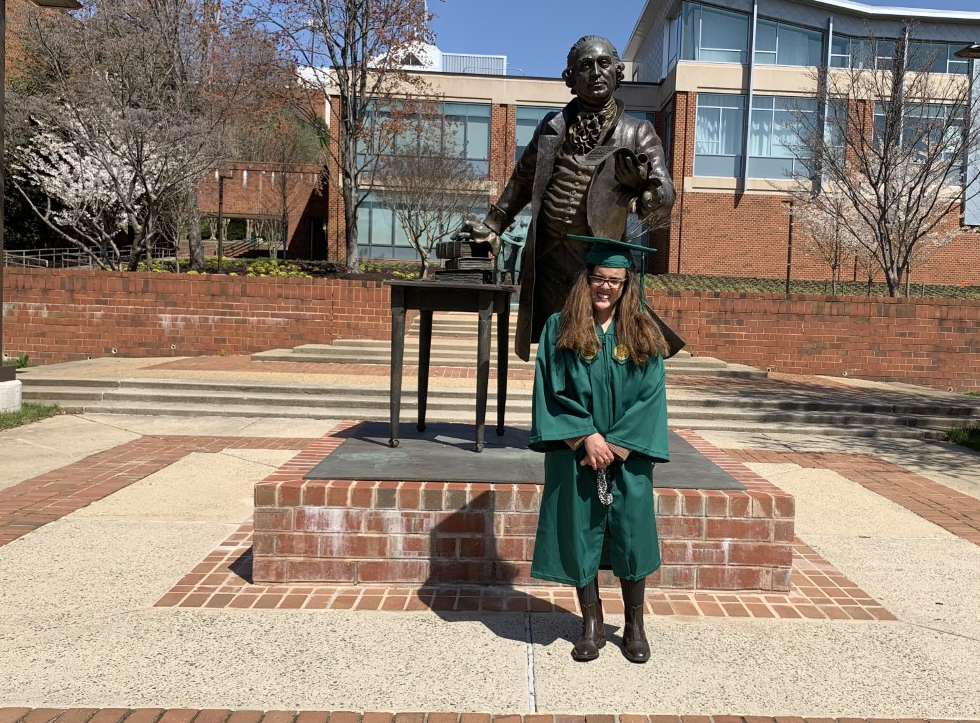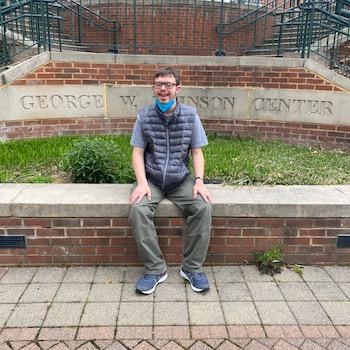Zach Fowler, 22, said he was excited to receive his certification for completing the four-year Mason Learning into Future Environments (LIFE) program. Fowler and five other students persevered through the pandemic to finish their postsecondary education at George Mason University.
“It was an amazing day,” said Fowler. But, he added, he’ll miss the community he’d developed over his years in the program. Fowler especially enjoyed helping new students adapt to college life.
Mason LIFE is an innovative postsecondary program for young adults with intellectual and developmental disabilities who want a university experience. The program is run through Mason’s College of Education and Human Development. Students typically attend Mason LIFE because they want to gain independence, take classes to increase their reading, writing, math, technology and vocational skills, and experience university life, according to Linn Jorgenson, director of Mason LIFE.
This year, the graduating class was smaller than normal because some students decided to defer their final year until after the pandemic. The ceremony was held virtually on Friday, May 7.
“I’m always proud of my students as they finish their education at Mason, but this past year was a true test, and the students adapted so quickly,” said Jorgenson. “They handled the changes with such professionalism.”
Sophia Gheblawi, 26, said she was exhausted from her studies, but enjoyed her time at Mason LIFE. She said she’ll miss her teachers and the support staff and expressed enthusiasm for the breadth of her education.
“I worked on my penmanship and learned how to act and not to act in a job interview,” said Gheblawi, who’s also writing a book of poetry. “My history classes helped me to expand my knowledge even further.”
Since 2002, Mason LIFE has helped students by providing them with a large support staff to assist in the classroom, employment settings and residential units. Mason LIFE students are expected to negotiate on their own transitions between classrooms and buildings, meals, and nonacademic activities, helping increase their self-sufficiency.
With the coronavirus pandemic, Mason LIFE, along with the rest of the university, had to pivot to ensure the safety of the campus. During the academic year, Mason LIFE students either learned virtually or in a hybrid environment. While students didn’t get as much freedom on campus as they normally would, they developed technology savvy and resilience, said Jorgenson.
“The silver lining in the pandemic is that students learned employable skills related to technology that would not have been developed had we not had to pivot so quickly,” said Jorgenson.
Mason LIFE plans to bring 54 students back in-person in the fall, including 14 incoming first-year students.
“Mason LIFE is part of the fabric of Mason, and the students bring a greater richness to campus,” said Pamela H. Baker, division director of the Division of Special Education and disAbility Research. “I’m so grateful Mason recognizes that every member of our community should be included in the opportunity to engage in a postsecondary learning experience.”


